Impasse between PM Trudeau and dissidents frustrates Liberal grassroots, and a ‘distraction’ to governing, say insiders
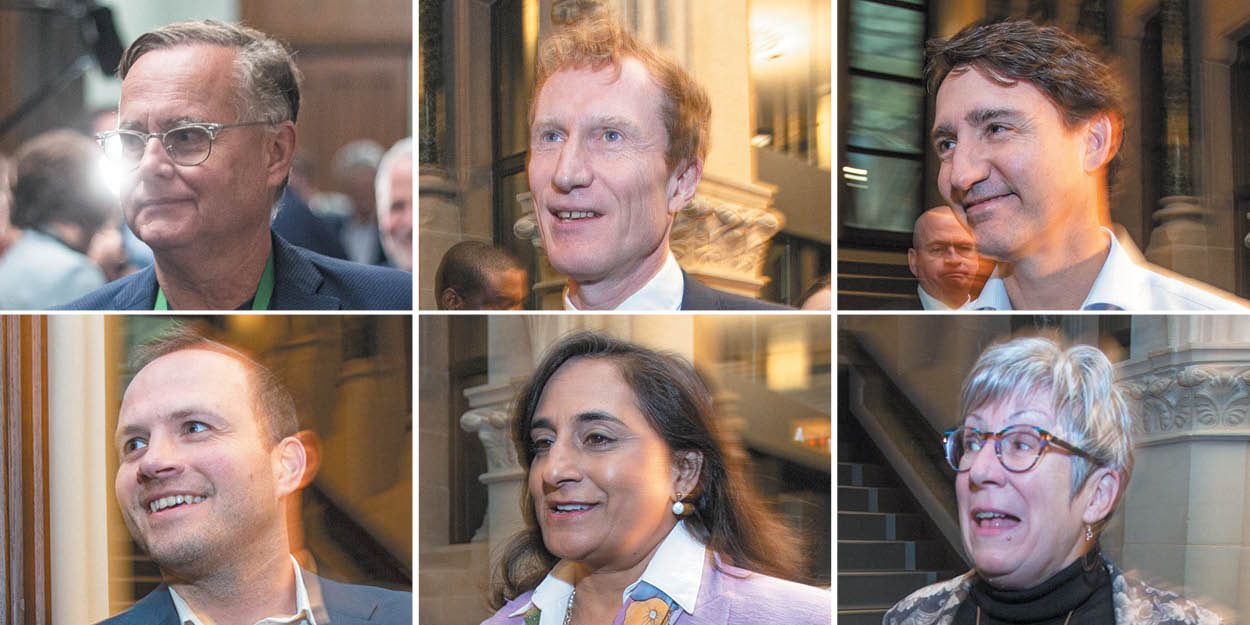
Plagued with caucus dissent, a gridlocked minority Parliament, bleak public opinion polls, and a mounting slate of domestic and foreign policy problems, Prime Minister Justin Trudeau faces an immense challenge to carry on effectively in his job.
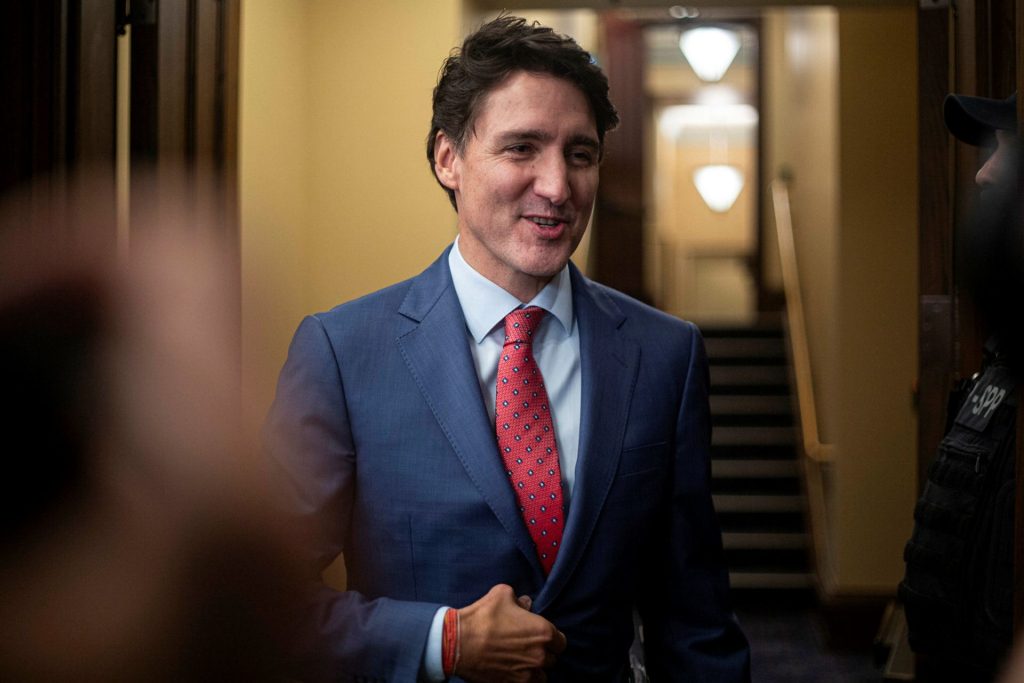
“More and more Liberals are recognizing Trudeau can’t recover, and they would like a chance of winning the next election,” said pollster Greg Lyle, president of Innovative Research, in an interview with The Hill Times.
Lyle said the prime minister’s circumstances are “only going to get worse.”

“There’s no scenario in which people wake up one day and say, ‘You know, I was wrong about Justin Trudeau. He’s got every chance of coming back and winning a majority in the next election.’ That is never going to happen,” said Lyle. “It’s just every day his job is going to be harder and harder.”
At the Oct. 23 national Liberal caucus meeting on the Hill, 24 MPs presented a written document to Trudeau (Papineau, Que.) requesting that he step down. Liberal MP Patrick Weiler (West Vancouver-Sunshine Coast-Sea to Sky Country, B.C.) was the first to speak at the closed-door weekly meeting, and read the letter to caucus in Trudeau’s presence. The document—which contained only the text of the letter, not the signatures of the 24 dissenting MPs—was later handed to the prime minister.
Liberal caucus sources say about 50 MPs spoke at the meeting, with roughly half of them in support of Trudeau, and the other half opposed to him carrying on as leader.
Some of the MPs who openly called for the prime minister to step down or used language interpreted by colleagues as a suggestion for Trudeau to reconsider his plans to lead the party in the next election include Weiler, Yvan Baker (Etobicoke Centre, Ont.), Wayne Long (Saint John-Rothesay, N.B.), Rob Oliphant (Don Valley West, Ont.), George Chahal (Calgary Skyview, Alta.), Anthony Housefather (Mount Royal, Que.), Sameer Zuberi (Pierrefonds-Dollard, Que.), Ali Ehsassi (Willowdale, Ont.), Parm Bains (Steveston-Richmond East, B.C.), Brendan Hanley (Yukon), René Arsenault (Madawaska-Restigouche, N.B.), Chris Bittle (St. Catharines, Ont.), Sean Casey (Charlottetown, P.E.I.), Helena Jaczek (Markham-Stouffville, Ont.), Alexandra Mendès (Brossard-Saint-Lambert, Que.), Sophie Chatel (Pontiac, Que.), and Ken McDonald (Avalon, N.L.).
Liberal sources say that the number of caucus members who believe Trudeau should step down before the next election is greater than those who spoke at the caucus meeting.
“If 24 people sign a letter, you have to expect that 50 people are thinking [what the letter says],” a second MP told The Hill Times last week.
Among the MPs who spoke in favour of Trudeau remaining were Health Minister Mark Holland (Ajax, Ont.), Diversity Minister Kamal Khera (Brampton West, Ont.), and Liberal MPs Yasir Naqvi (Ottawa Centre, Ont.), Taleeb Noormohamed (Vancouver Granville, B.C.), Shafqat Ali (Brampton Centre, Ont.), Maninder Sidhu (Brampton East, Ont.), Chandra Arya (Nepean, Ont.), Sukh Dhaliwal (Surrey-Newton, B.C.), Mona Fortier (Ottawa-Vanier, Ont.), Charles Sousa (Mississauga-Lakeshore, Ont.), Francis Scarpaleggia (Lac-Saint-Louis, Que.), Joanne Thompson (St. John’s East, N.L.), Randeep Sarai (Surrey Centre, B.C.), and Adam van Koeverden (Milton, Ont.).
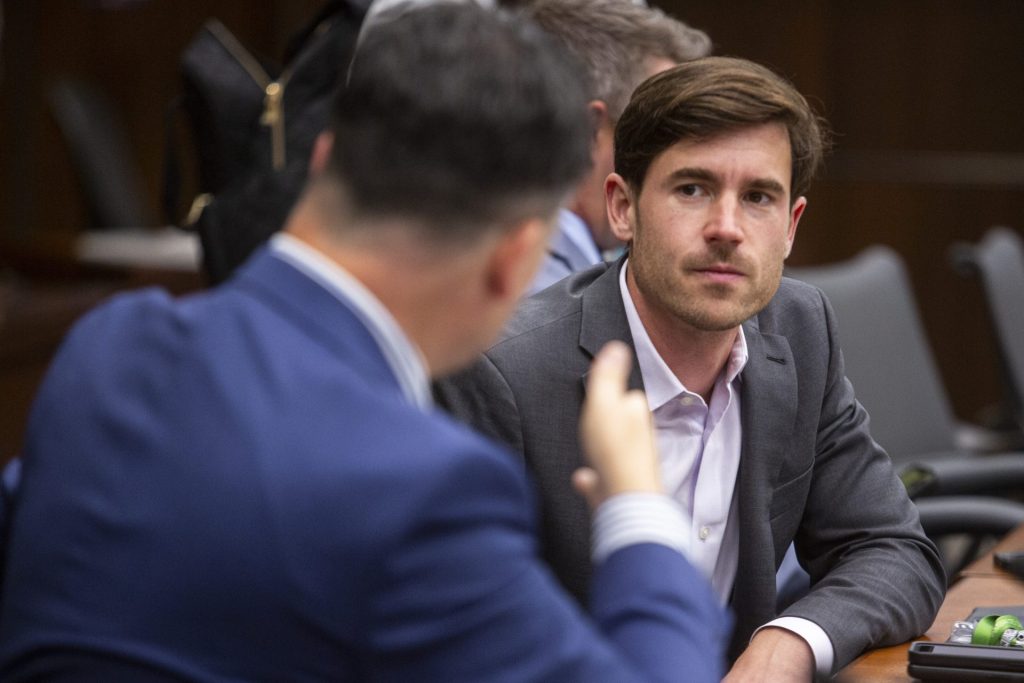
Liberal MPs told The Hill Times that some of the MPs who supported Trudeau’s leadership at last week’s meeting also cautioned him not to take caucus support “for granted,” adding that their backing does not imply there are no issues with his management of the party or caucus.
The dissenting MPs asked Trudeau to reconsider his future, and to announce by Oct. 28 whether he planned to continue. Despite giving a deadline, they did not specify what action they would take if their demands were not met.
The following day, on Oct. 24, Trudeau told reporters he plans to stay.
“As a party, we’ve always had robust discussions about the best way forward,” said Trudeau. “We’ll continue to have them with me as leader.”
In reaction, some dissident MPs said that they were under the impression Trudeau intended to seriously reflect on their feedback. They said rebuffing their request so quickly was dismissive.
“Those who made representations were numerous, were clear, and to take only one night to reflect and come back with this is [disappointing],” said one dissenting MP, who spoke on a not-for-attribution basis to candidly offer their views.
“That’s not showing that the caucus was heard. It’s ignoring the sentiments of the caucus.”
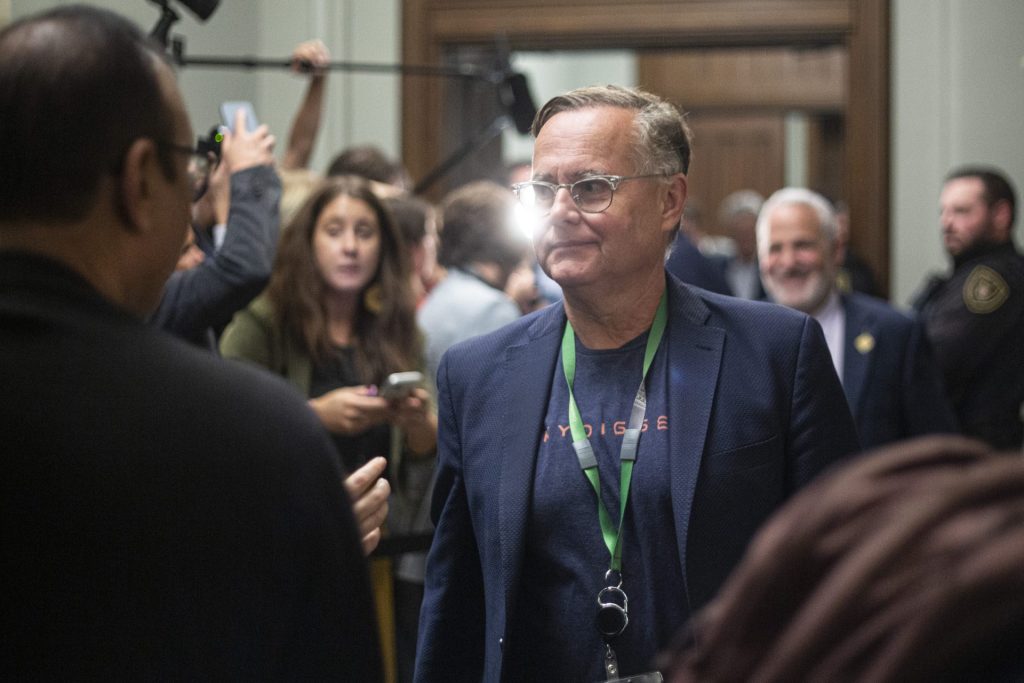
Long, another dissenting MP, told The Toronto Star that Trudeau “needs to reflect more. A lot more.”
“I don’t think 18 hours is enough time to really give pause,” said Long. “I honestly hoped he’d take the weekend.”
But the same day, Casey told reporters outside West Block that he was “moving on” from the push for Trudeau to resign. “There’s so much energy burned on all this, and that isn’t where it needs to be now this case is clearly closed,” he said.
“This is a decision that he had every right to make, and he made it. I did my job by voicing what I was hearing from my constituents, and now I’ve got to take my energy and direct them to winning my seat and not on internal party matters. As far as I’m concerned, it’s closed,” Casey said.
Casey said Trudeau had listened, but “he wasn’t swayed” by what was said in the caucus meeting. “Our views weren’t the only ones,” he said.
“I don’t think having this feeding frenzy for another two or three days would have helped anyone if his mind was made up anyway, so it is what it is,” said Casey.
No mechanism to break the impasse
With no formal mechanism like the Reform Act to bring the issue to a resolution one way or the other, observers said the matter may drag on and continue to dog Trudeau, and the party as a whole.

Nick McRoberts, a former Liberal staffer from Atlantic Canada, said that grassroots Liberals in the region are feeling “frustration” with the way events are unfolding, and are worried it will lead to “a pretty catastrophic election.”
“You have the two sides coming at each other, and no one’s happy, and we’re about to go into an election season,” said McRoberts, who is now a vice-president at the consultancy Winston Wilmont. “That’s not going to resonate with voters, but most importantly, it’s not going to resonate with volunteers and donors, and that’s what wins campaigns.”
He said if the party wants to talk about winning, “or even just surviving the next election, we cannot have this tiff.”
“This process seemed highly unorganized. It seemed haphazard,” he said, describing the reaction of grassroots Atlantic Liberals to the Oct. 23 leadership challenge. He said many also viewed it as “courageous,” but “there was no threat behind asking him to leave. There was no ‘or what.’”
While it is “ultimately the prime minister’s decision,” said McRoberts, the current situation does not serve the party.
“We do still have a chance of maybe forming a minority,” said McRoberts. “That’s not going to happen under Justin Trudeau.”
He said with no mechanism to remove Trudeau by force, a better approach might be the type of persuasive pressure applied by former Jean Chrétien-era staffer Eddie Goldenberg in a recent op-ed that called on Trudeau to step down and consider other ways to serve Canada in the future.
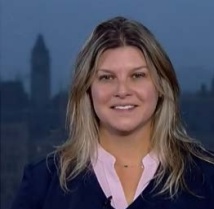
Lori Turnbull, a political science professor at Dalhousie University, said it seems an “airing of the grievances” at caucus “did nothing.”
“It depends on whether the caucus members who are disgruntled feel that is a meaningful gesture,” she said. “Do they feel like getting whatever the heck they had to say off their chest—is that all they needed?”
If it is, she said, “perhaps it’ll all quiet down,” but if they “really believe that [Trudeau] needs to step aside … then that accomplished nothing.”
She said a lot will depend on what happens when the dissenters self-imposed Oct. 28 deadline comes to pass. They need to “put something meaningful behind it,” she said.
Turnbull said it appears they want Trudeau “to leave on his own accord,” but that looks unlikely.
“I don’t know if [Trudeau] would leave, even if the 24 of them decided to leave caucus,” said Turnbull. “I think he’d let himself be defeated in the House before he walked away from the leadership. … He absolutely believes that this is his position. It’s his job. He’ll decide when he leaves, not anybody else.”
That leaves the dissenters “jammed,” said Turnbull.
One of the few measures available to them to force the issue—leaving caucus or voting against the government—would only increase the likelihood of the government falling. That would cause an election while Trudeau remains leader—the very scenario the dissenters want to avoid.
“That still doesn’t really help them because then they end up in an election with him,” she said.
There is no other formal mechanism in either the party or caucus to break the impasse.
“I think not having the Reform Act is a big part driving it,” said McRoberts. “We don’t have a mechanism within the party to remove the leader unless we lose an election.”
Turnbull said with the act in place, “nobody would do a secret letter.”
“The dissenters would be better off, and Trudeau would be better off,” she said. “There would be a decision, and everybody would have to live with it.”
Instead, she said, they’re left with “weird pressure campaigns that are ultimately going to get nowhere.”
Lyle said the longer the infighting continues, the better it is for opposition parties—especially the NDP—because they can present themselves as the best alternative for non-Conservative voters.
“If you’re the Tories or the NDP, you’re sort of sitting there going, ‘This is great. He should stay. The longer, the better,’” Lyle said.
A distraction to governing
Turnbull said, the matter is “a distraction,” but Trudeau has tools at his disposal to keep governing in the face of dissent.
“He’s a powerful person,” said Turnbull. “He has the PMO, he has a cabinet, he has the public service working for him and his government to achieve their objectives.”
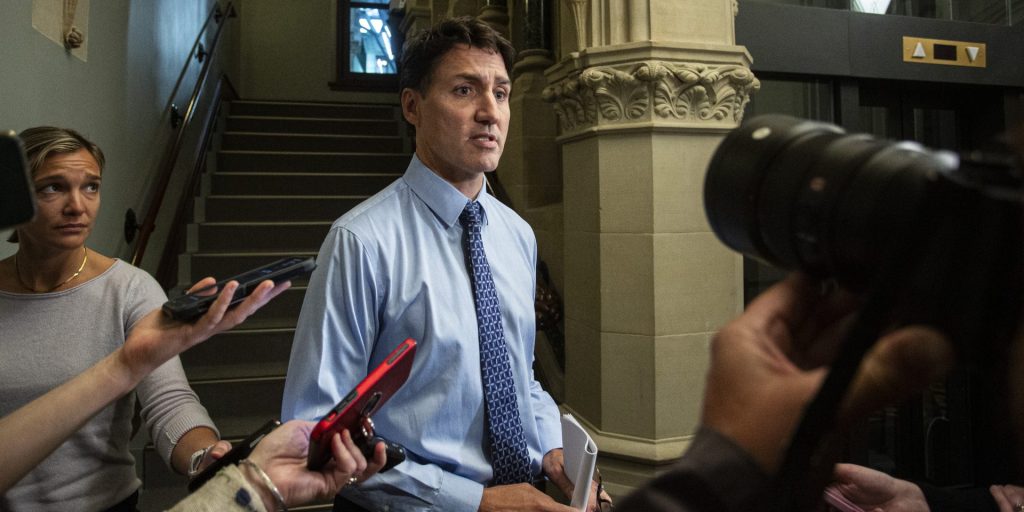
But McRoberts said there will be increased friction for the prime minister when he goes to use many of these levers, as long as questions about his leadership persist.
“This is what the narrative is going to be,” said McRoberts. “Is it an Ottawa story? Is it a bubble story? Probably. But Ottawa is where governing happens.”
The prime minister is also contending with a gridlocked minority Parliament that has been tied up for weeks by opposition parties in an ongoing privilege debate.
McRoberts said the show of unity around Trudeau in the Question Period immediately following the high-stakes caucus meeting may not indicate the day-to-day level of co-operation he will enjoy from members of his own government going forward.
“I think you’re going to be met with a lot of gridlock between MPs offices and PMO,” he said.
He added a likely exodus of senior staff from ministers’ offices will be a further drag on the government getting its work done.
“There are going to be significant personnel and interpersonal challenges that will cause, not necessarily the ability to govern, but the quality of interactions in that governance to diminish,” said McRoberts. “To the point that the prime minister might say, this is not an environment that I want to work in.”
Editor’s note: This article was updated on Nov. 1, 2024, to clarify that some MPs didn’t directly call on Prime Minister Justin Trudeau to step down, but used language that caucus sources interpreted as a desire for him not to lead the Liberals in the next election.
arana@hilltimes.com
The Hill Times





 LICENSING
LICENSING PODCAST
PODCAST ALERTS
ALERTS













